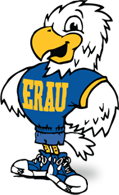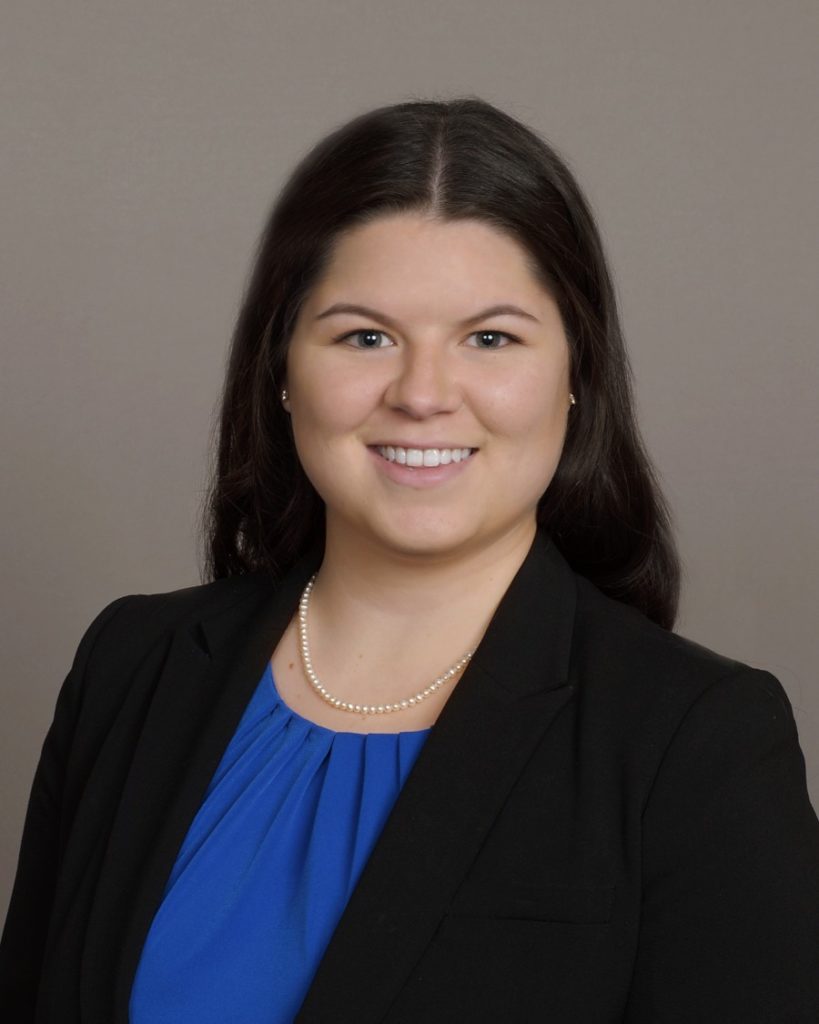
I’m Alexis Hepburn from Lake Stevens, Washington. For the past three years at Embry-Riddle, I have devoted myself to engagement with my campus community through mentorship, leadership, and research. As an Honors Program student on the research track, I have been able to cultivate my newly formed skills as a future Aerospace Engineer. The Embry-Riddle staff and faculty foster an environment of academic rigor, engaging hands-on experiences, and the potential to grow personally and professionally. The Embry-Riddle family continually rises to the challenge of providing the optimal undergraduate career.
In the late spring of 2018, I contacted Dr. Daniel White in order to pursue a potential mentor relationship. His experience in electric propulsion both in industry and an academic setting supported and aligned with my longtime interests. Upon our first interaction, he encouraged me to visit his office so we could begin a research project of our own. I was amazed at his openness and enthusiasm to teach me the things that I’d been missing, having previously been solely dependent on scholarly literature. With his assistance, we began working on a single-stage bismuth fed stationary plasma thruster.
A stationary plasma thruster is a form of electric propulsion used most often on satellites for long duration missions. The fuel source is usually an inert gas which is heated to the point of becoming a plasma. The engine operates via energizing and ejecting the plasma with help from the Hall Effect, which describes the relationship between an electric and a magnetic field.
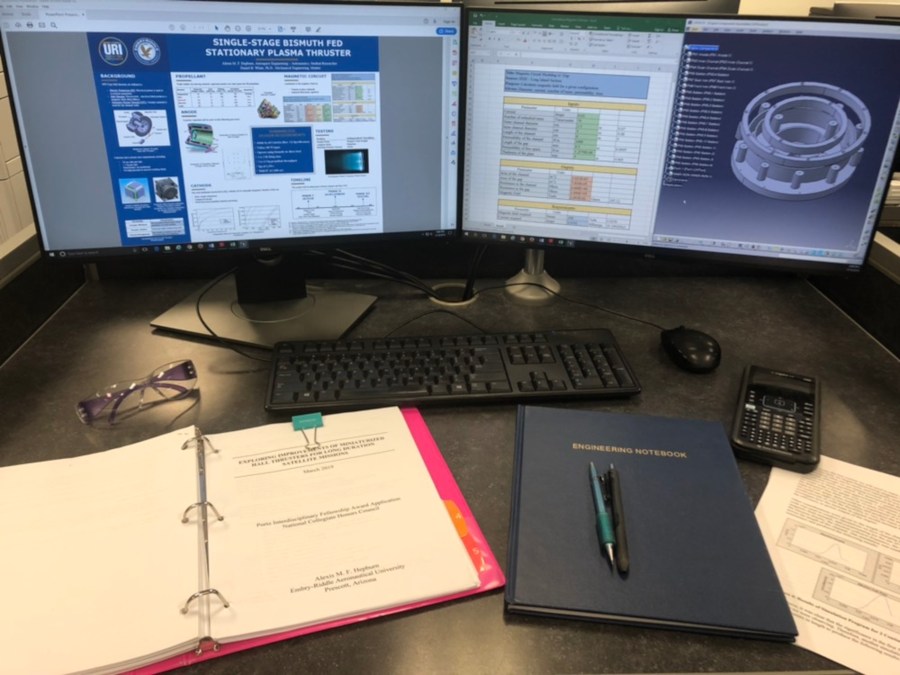
After a few short weeks of preliminary work sessions filled with whiteboard ‘chicken scratch’, spreadsheet configurations, and computer-generated models, we were ready to submit our proposal to the Undergraduate Research Institute (URI). URI is an unparalleled resource for students because it allows them to pursue their research interests in a supportive and resource-laden environment.
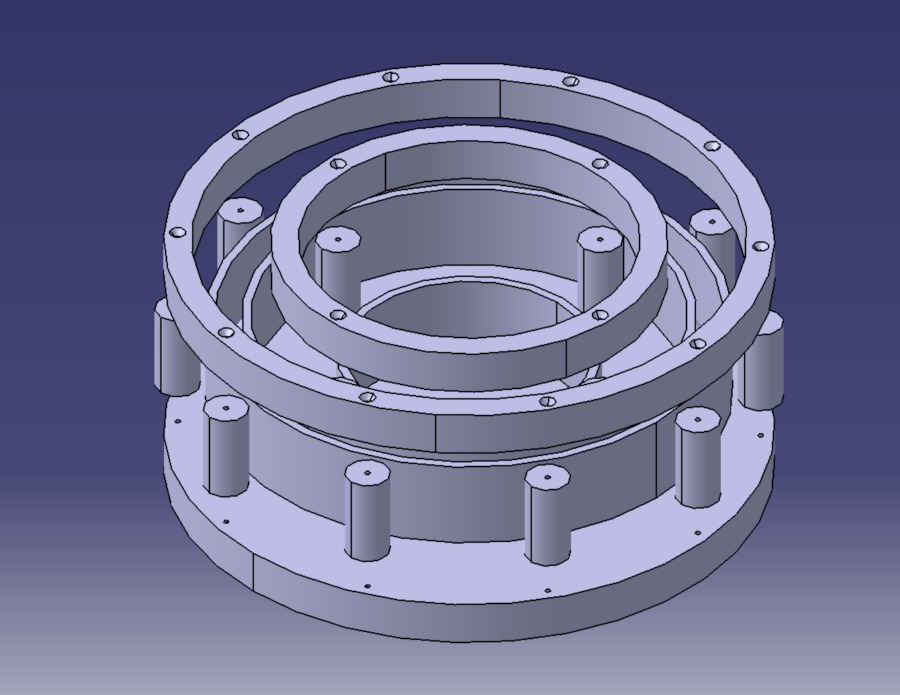
The Embry-Riddle professors are confident in their students and therefore, Dr. White encouraged me to submit our preliminary design to the American Institute of Aeronautics and Astronautics (AIAA) national Energy and Propulsion Forum in August. Upon acceptance to this conference, I will now have the opportunity to present and publish my research among some of the industry’s leaders. I will have the context to grow my network, represent my university, and display my work among future colleagues.
One of the benefits to Honors Program students is that we are invited to apply for awards, fellowships, and scholarships through the National Collegiate Honors Council. This year, I was thankful to have been accepted as a 2019 Portz Interdisciplinary Fellowship recipient, where I will seek to address the potential improvements for miniaturized Hall thrusters for long duration satellite missions.
I owe much of my success and appreciation to my mentor, Dr. White, who has continuously gone above and beyond during the planning and development of this research. I would also like to thank the Honors Program Director, Dr. Boettcher for her continued interest in my success which was often delivered in well-timed encouragement and constructive critiques. Finally, this would not have been possible without the patience and diligence of the machinists, rapid prototyping lab technicians, research librarians, and the College of Engineering administrators.
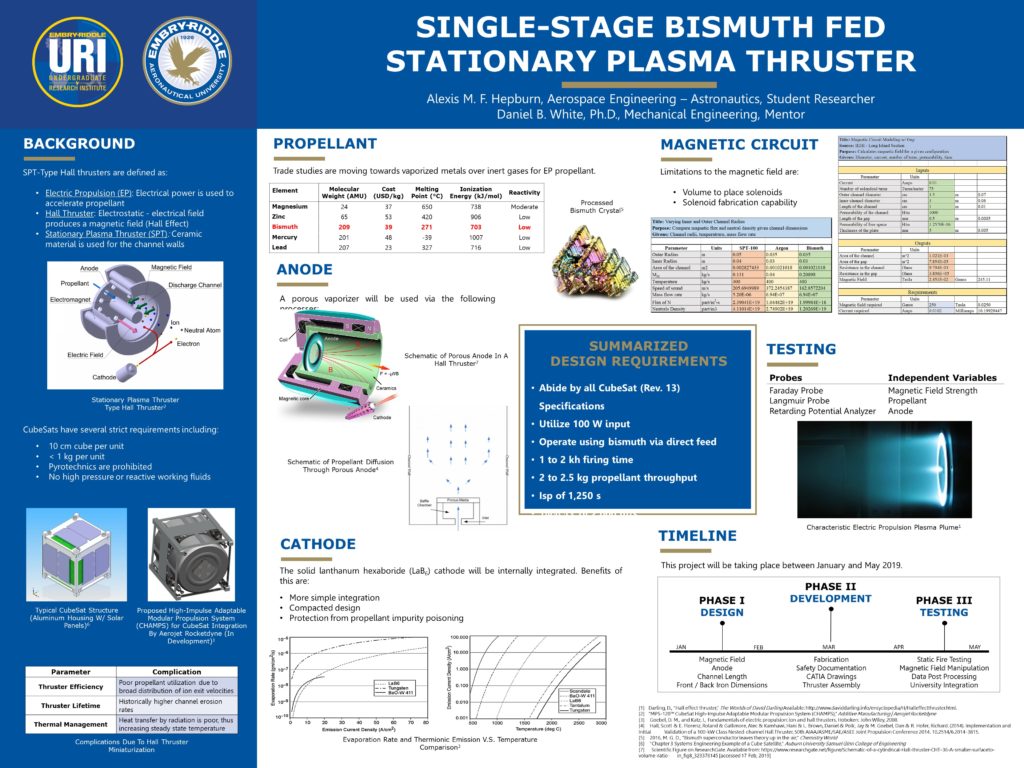
Find me on LinkedIn at: https://www.linkedin.com/in/alexis-hepburn



